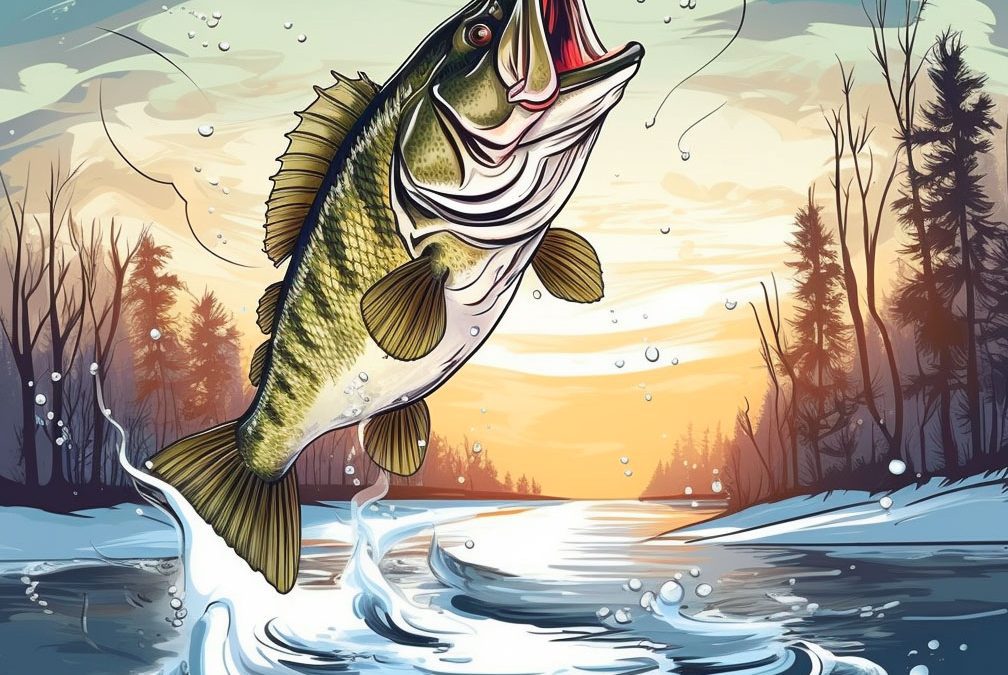If you’re an avid angler, there’s no stopping you from pursuing your passion, even if it’s winter. However, fishing in cold water is entirely different from fishing in warm water. As outdoor enthusiasts, we need to understand how different seasons affect the behavior of fish and how we can adapt to it. One of the biggest questions that arise during winter is whether bass bite in 30-degree water.
Understanding the Factors That Affect Bass Feeding Behavior in Cold Water
The ability to understand and appreciate how different factors can impact the feeding behavior of fish is essential to have a successful fishing trip. The three main factors that affect bass feeding behavior in cold water are water temperature, water clarity, and light.
Water temperature plays a significant role in determining bass’s metabolic functions and feeding behavior. Many believe that bass stops feeding when water temperatures become too cold, but this isn’t entirely accurate. Bass metabolism indeed slows down as the water temperature decreases, but they still need to consume food.
The clarity of the water also plays a vital role in bass feeding behavior. Clear water is more conducive to sight-feeding fish, which means bass becomes more wary and cautious. Murky water, on the other hand, makes it harder for fish to see, and bass will rely more on their other senses such as hearing and smell.
Lastly, light is an important factor in determining a fish’s feeding behavior. During the winter, the sun is lower in the sky, and the days are shorter, decreasing the amount of light that reaches the water. This change in light can make it harder for a bass to see their prey and can affect their feeding behavior.
Strategies for Catching Bass in Cold Water
Knowing how the different factors affect bass feeding behavior is only half the battle. The other half is figuring out how to catch them in cold water. Here are some strategies that can help you catch bass in cold water.
Understanding the preferred habitat of bass in cold water: During the winter, bass tend to move to deeper waters, where the temperature and oxygen levels are more consistent. They can also be found in areas where the water is moving and near areas with cover such as logs or rocks.
Choosing the right bait and lure for cold water fishing: Bass are more sluggish in cold water, which is why fishing with slow-moving baits is recommended. When it comes to selecting baits and lures, soft plastic worms, hair jigs, and blade baits are great choices for cold water fishing.
Changing the fishing technique to match the feeding behavior of cold-water bass: Adjusting your fishing techniques to match the feeding behavior of the fish is important. Bass in cold water tend to move more slowly, so fishing with a more subtle technique is recommended.
Tips for Fishing in 30 Degree Water
Fishing in 30-degree water can be a daunting task, but with a few tips, you can increase your chances of catching bass.
The importance of patience when fishing in cold water: Cold water fishing is all about patience. It can take a long time for bass to find and consume your bait. Give them plenty of time to investigate your bait, and be patient.
The advantages of fishing in slow-motion: As mentioned earlier, bass are more lethargic in cold water, which means their movements will be slower. Fishing in slow-motion can help you get more attention from fish.
The importance of winterizing fishing gear: Winterizing your fishing gear is essential before heading out into the cold water. It’s important to protect your gear from the harsh weather conditions. This can be achieved by keeping your gear dry, lubricating your reel, and keeping your lines from freezing.
In conclusion, bass do bite in 30-degree water – they are just more sluggish in their movements and feeding behavior. Understanding the factors that affect bass feeding behavior in cold water and adapting your fishing techniques can help you catch more fish. With a little patience, the right bait, and proper gear preparation, anglers can enjoy fishing all year long, even during winter.

